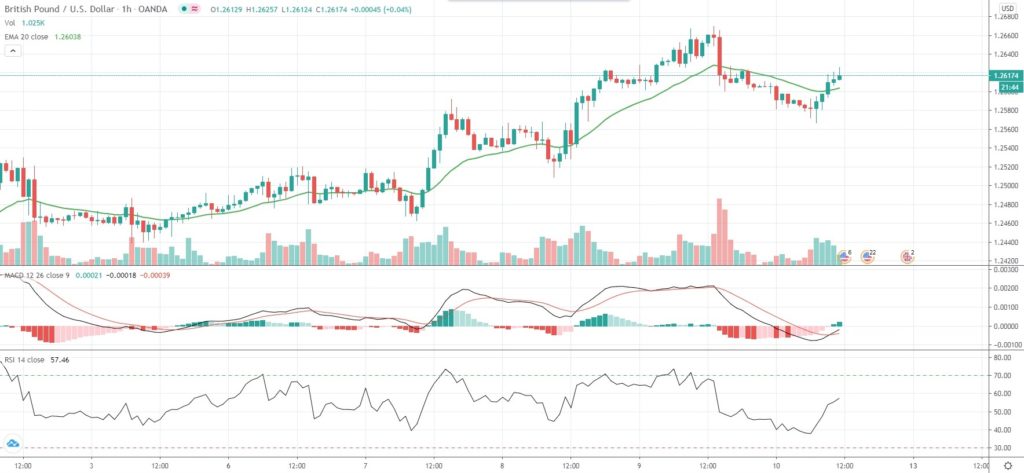GBP/USD came off Thursday’s three-week highs and steadied just above the 1.2600 mark in late European trade on Friday, as the recent dollar rally seemed to have paused.
The Pound and other risk-sensitive currencies fell overnight as concerns over the accelerating coronavirus spread across the United States and a new surge in infections in some Asia Pacific areas, where the illness had appeared to have been contained, triggered a move into safe haven assets.
Developments surrounding Brexit were also in focus. Regardless of that Britain and the European Union have made certain progress over fisheries, EU chief negotiator Michel Barnier said there still remained considerable divergences in trade talks, which set the stage for another round of negotiations during the upcoming week.
In regard to Brexit talks, earlier on Friday European Council President Charles Michel said that EU countries, regions and industries should be prepared to face disruptions from 2021 in either Brexit scenario and proposed a new “Brexit Adjustment Reserve” of EUR 5 billion.
Meanwhile, ratings agency Moody’s said the UK government’s recently announced economic plan would support a gradual recovery, but it would mount more pressure on the country’s fiscal position. Moody’s analysts see UK’s public debt ratio likely rising by 24 percentage points of GDP or more compared to 2019 levels and also project a 10.1% contraction in the country’s economy this year.
However, they forecast “a gradual subsequent recovery on the back of the easing in lockdown measures, with growth rebounding to 7.1% next year.”
As of 11:37 GMT on Friday GBP/USD was edging up 0.10% to trade at 1.2617, while moving within a daily range of 1.2567-1.2626. Yesterday the pair surged to 1.2670, or its strongest level since June 16th (1.2688). GBP/USD has appreciated 1.08% so far this week, while being set to extend gains achieved during the preceding week.
In terms of economic calendar, at 12:30 GMT today the US Bureau of Labor Statistics is to report on the Producer Price Index performance. Annual producer prices probably dropped 0.2% in June, according to market expectations, following a 0.8% slump in May.
Meanwhile, the nation’s annualized core producer price inflation, which excludes prices of food and energy, probably accelerated to 0.4% in June from 0.3% in May.
Bond Yield Spread
The spread between 2-year US and 2-year UK bond yields, which reflects the flow of funds in a short term, equaled 26.1 basis points (0.261%) as of 10:15 GMT on Friday, up from 24.3 basis points on July 9th.
Daily Pivot Levels (traditional method of calculation)
Central Pivot – 1.2625
R1 – 1.2650
R2 – 1.2694
R3 – 1.2719
R4 – 1.2744
S1 – 1.2580
S2 – 1.2556
S3 – 1.2511
S4 – 1.2466






